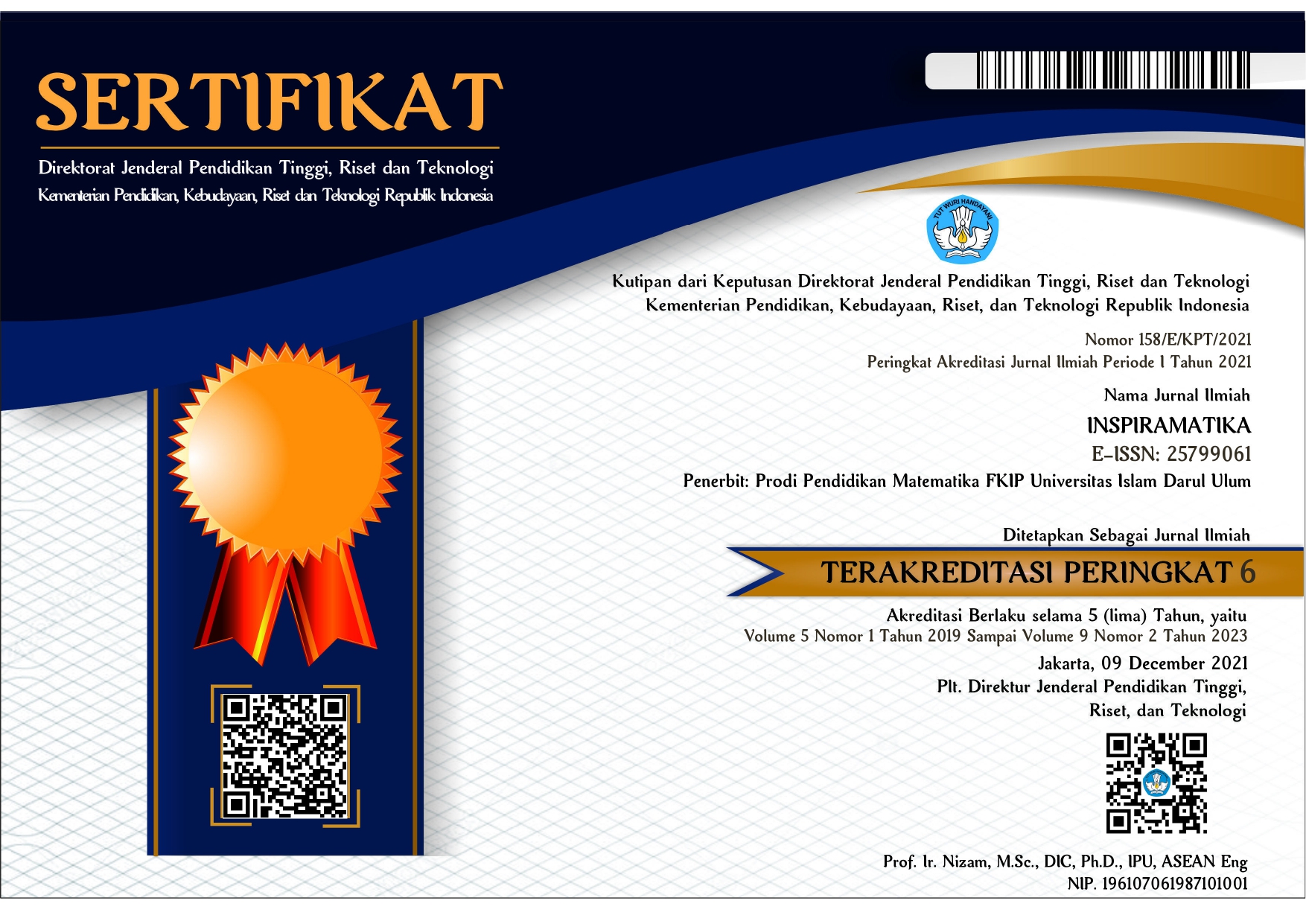ANALISIS KEMAMPUAN PEMAHAMAN KONSEP DITINJAU DARI KARAKTERISTIK CARA BERPIKIR SISWA
Abstract
This research is a descriptive qualitative research. The subjects of this study were 8 grade VII-A students of SMP NU SIMO for the 2019/2020 academic year. The determination of the subject was based on the results of a questionnaire on the characteristics of the way of thinking. The data used are test results and recorded interview results. Based on the data analysis, it can be concluded that: (1) The ability to understand concepts with the characteristics of concrete sequential type students' way of thinking in solving problems on the SK1 subject is at the level of only fulfilling 6 indicators of concept understanding, namely indicators 1, 2, 4, 5, 6, and 7. Whereas in the SK2 subject only fulfills 4 indicators of concept understanding, namely indicators 3, 4, 5, and 7. (2) The ability to understand concepts with the characteristics of students' abstract sequential type of thinking in solving problems on the subject of SA1 and SA2 is at a level that meets all indicators of concept understanding. (3) The ability to understand concepts with the characteristics of concrete random type students' way of thinking in solving problems on AK1 subjects is at a level that only meets 5 indicators of conceptual understanding, namely 1, 2, 4, 5, and 7. While the AK2 subject is at a level that is meet all indicators of concept understanding. (4) The ability to understand concepts with the characteristics of abstract random type students' way of thinking in solving problems on the AA1 subject is at a level that only meets 4 indicators of concept understanding, namely 3, 4, 5, 7. Whereas in AA2 subject only meets 6 indicators of concept understanding, namely indicators 1, 2, 4, 5, 6, and 7.
Downloads
References
DePorter, B. & Henarcki, M. 2004. Quantum Learning: Membiasakan Belajar Nyaman dan Menyenangkan. Bandung: Kaifa.
Destiniar. 2016. Pengaruh Media Pembelajaran Adobe Flash Player dan Infokus Terhadap Pemahaman Konsep Matematis Siswa Kelas VII SMP PGRI 11 Palembang. Jurnal Pengabdian dan Pemberdayaan Masyarakat, 9(2): 277-282.
Kurniawan, Albert. 2014. Metode Riset untuk Ekonomi dan Bisnis: Teori, Konsep, dan Praktik Penelitian Bisnis (Dilengkapi Perhitungan Pengolahan Data dengan IBM SPSS 22.0). Bandung: Alfabeta.
Moleong, Lexy J. 2007. Metodologi Penelitian Kualitatif. Penerbit PT Remaja Rosdakarya Offset: Bandung.
Mudhiah, S., & Shodikin, A. 2019. Pengaruh model pembelajaran berbasis masalah terhadap kemampuan pemahaman konsep dan penalaran geometris siswa. Jurnal Elemen, 5(1), 43-53.
Susanto, Ahmad. 2013. Teori Belajar dan Pembelajaran di Sekolah Dasar. Jakarta: Kencana Prenadamedia Group.

This work is licensed under a Creative Commons Attribution-ShareAlike 4.0 International License.







.png)




